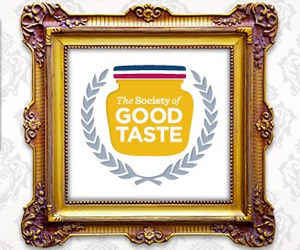I’ve always been a picky eater, though my palate has developed as I’ve gotten older. I used to avoid nearly all condiments and toppings. I’d eat salads without dressing, sandwiches without mayo, and whatever you put mustard on, I didn’t. I’ve come around on some of those. Any salad is better with ranch. I need mayo on my tuna sandwiches.
I still hate mustard, though.
Hello. My name is Jon, and I’m a fan of Grey Poupon on Facebook.
It makes little sense, allowing a brand I have no intention of ever buying into my precious Facebook timeline. If my wife sneaked it into a sandwich, I’d spit it out like a petulant child. But Grey Poupon took an approach to building a community on Facebook that was so unusual, so exclusive, that I had to become a fan (or at least try).
According to the brand’s Pinterest page, which also serves as its website, the mustard is “synonymous with all that is refined, exquisite and delicious.” So, like country clubs and gated communities, Grey Poupon’s Facebook page is not open to just anyone. No, it’s a “discerning Facebook Society that rewards those who spread good taste,” and you have to apply to become a member.
While brands are racing to expand their follower bases, buying Facebook ads and, in some sad cases, even buying fans, Grey Poupon is doing the opposite.
Any Facebook user can Like the page, but Grey Poupon features an in-page application that houses the Society of Good Taste—a “private club committed to upholding the pillars of good taste set by our mustard. Only applicants with the most discerning palates will be admitted.” The kicker is that if you don’t “cut the mustard,” so to speak, your Like will be rescinded. The algorithm looks at the movies you watch, the restaurants you frequent and your grammar.
It’s unique. It’s grabbing headlines. It’s being shared. It’s creating massive earned media—the kind that’s free and that continues to work for a brand.
The Grey Poupon Story
In every marketing endeavor, it’s important to ensure that the brand’s efforts are aligned with its story. Aside from this campaign’s uniqueness, what impressed me most was how the approach fit perfectly with the Grey Poupon brand story. Grey Poupon’s story platform revolves around an exclusive, elite culture. While all the other mustards are letting fans Like their pages at will, Grey Poupon will not. The mustard itself is a mass-consumed CPG product available at your local grocer, but its story makes you believe, even if only momentarily, that your Grey Poupon should be situated right next to the caviar and eaten before you head off to your croquet match.
Quality Versus Quantity
In the world of social media, large numbers of fans, followers and members is a holy grail of sorts, though it’s something of an empty vessel. Whether you have 20 fans or 20 million fans, it doesn’t matter unless those fans are taking action.
Also, since Facebook is now answering to Wall Street, it’s searching for ways to milk brands of money by promising them bigger and more efficient exposure and engagement. Features like Promoted Posts allow your brand to show up in more fans’ feeds; the pricing, however, is based on how many fans you have. The more fake, unqualified or disengaged fans you have, the more you’re paying for absolutely no return.
Ensuring that fans on Grey Poupon’s Facebook page are in line with the brand’s values may not be enough to move the revenue needle, but it will lead to more engagement and more value for Grey Poupon’s advertising dollar.
Of course, I am a fan yet I have no intention of buying the product, so maybe I’m exactly the fan that’s wasting this brand’s advertising dollar. But think again: I just wrote more than 600 words about the brand, for free, with no hidden agenda, and you read every word. That’s earned media.
What do you think? Will this strategy lead to a more engaged community for Grey Poupon? Or will it just grab headlines?

